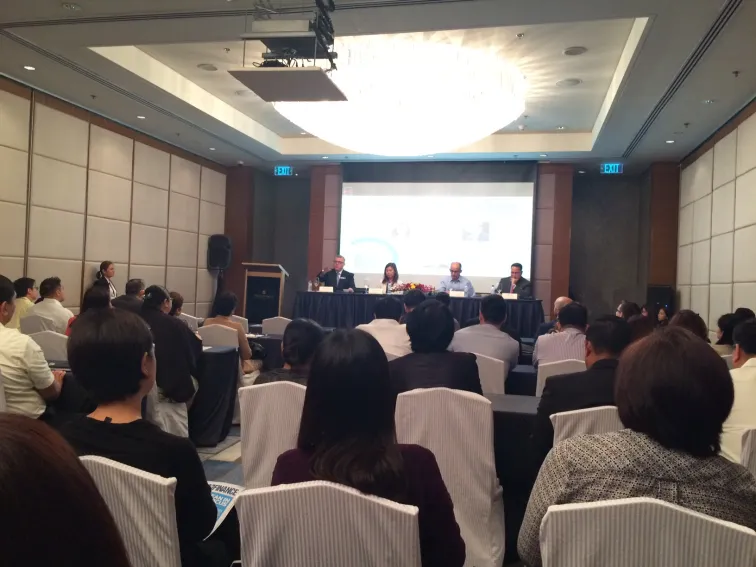
Are the Philippine banks ready for the financial consumer protection regulations?
Banks have varying degrees of readiness.
When the Central Bank of the Philippines released Circular 857 in November 2014, banks had another regulatory requirement to worry about. The Consumer Protection Framework contains standards of consumer protection in the areas of disclosure and transparency, protection of client information, fair treatment, effective recourse, and financial education. This year, the Central Bank will begin on-site assessments among the banks. But are the banks ready?
This was one of the hot topics discussed today at the Manila leg of Asian Banking and Finance’s Retail Banking Forum held at the Makati Shangri-La.
“The policies, in terms of its intent, are very much commendable because they address the demands in today’s standards and corporate governance. As a medium-sized bank, it affects us greatly because clearly, if we do not pass the audit, that would disable us to launch new products,” said Miguel Angelo Villa-real, corporate communications head at the Philippine Veterans Bank.
Villa-real shared the results of an informal survey of 13 bankers who answered the question: “Are the banks ready for the financial consumer protection regulations?” As can be expected, no one answered they are full ready. Majority said that yes, the banks are ready but there are varying degrees of readiness. After all, being fully compliant is relative depending on where you stand.
Patrick Cheng, head of trust at China Bank, said: “It’s a matter of perspective and where you’re coming from. Consumer protection goes hand-in-hand with consumer education. One of the key advocacies now of the Central Bank is financial inclusion with only around 30% of the population having bank accounts. There is a lot more that we can tap and it’s important for the industry as a whole to work together in terms of consumer education to be able to get a more holistic view of consumer protection.”
Cheng added that if there was one area that is hardest for banks to do, it’s in terms of the consumer education and the kind of disclosures. “The rules now are more difficult to understand. A client has to sign rims of documents with disclosures. If I sit down and I am not a lawyer, what is the likelihood of a client signing it when it is more than 10 pages thick? Why can we not put things down to a single or two pages where disclosures are in simpler terms rather than trying to catch every eventuality and writing ten pages about risks?”
Atty. Prudence Angelita Kasala, head of financial consumer protection group at the Central Bank of the Philippines, noted that based on their off-site assessments, most of the banks are making adjustments to comply with the framework. “Based on discussions with the industry, we see that they will have to do this in phases – there will be certain areas they will have to focus on first. Most of the banks are focusing on the compliance with disclosure and transparency.” Kasala said they will start on-site assessments this year.
Other panelists were Cristina Tan, managing director, consumer management at Citibank; Eduardo Olbes, EVP - wholesale banking segment at Security Bank; and Mark Perez, retail banking head at Metrobank, who discussed about non-bank competition and mobile banking in the country. Benel Lagua, EVP and chief development officer, Development Bank of the Philippines, also spoke about the current trends and challenges in SME lending in the country.
Representatives from Diebold and Experian also delivered presentations during the forum.
More than 60 bankers and industry players attended the Manila leg of the ABF Retail Banking Forum. The event will also be held in four more cities in the coming weeks - Kuala Lumpur, Jakarta, Singapore, and Bangkok. To find out more about the event, click here.






![Lorem Ipsum [ABF 1]](https://cmg-qa.s3.ap-southeast-1.amazonaws.com/s3fs-public/styles/exclusive_featured_article/public/2025-03/a_hand_pointing_to_a_futuristic_technology_5b87c9d0e3_1.png.webp?itok=2w0y1WhS)


![Cross Domain [Manu + SBR + ABF + ABR + FMCG + HBR + ]](https://cmg-qa.s3.ap-southeast-1.amazonaws.com/s3fs-public/styles/exclusive_featured_article/public/2025-01/earth-3537401_1920_4.jpg.webp?itok=WaRpTJwE)








 Advertise
Advertise

